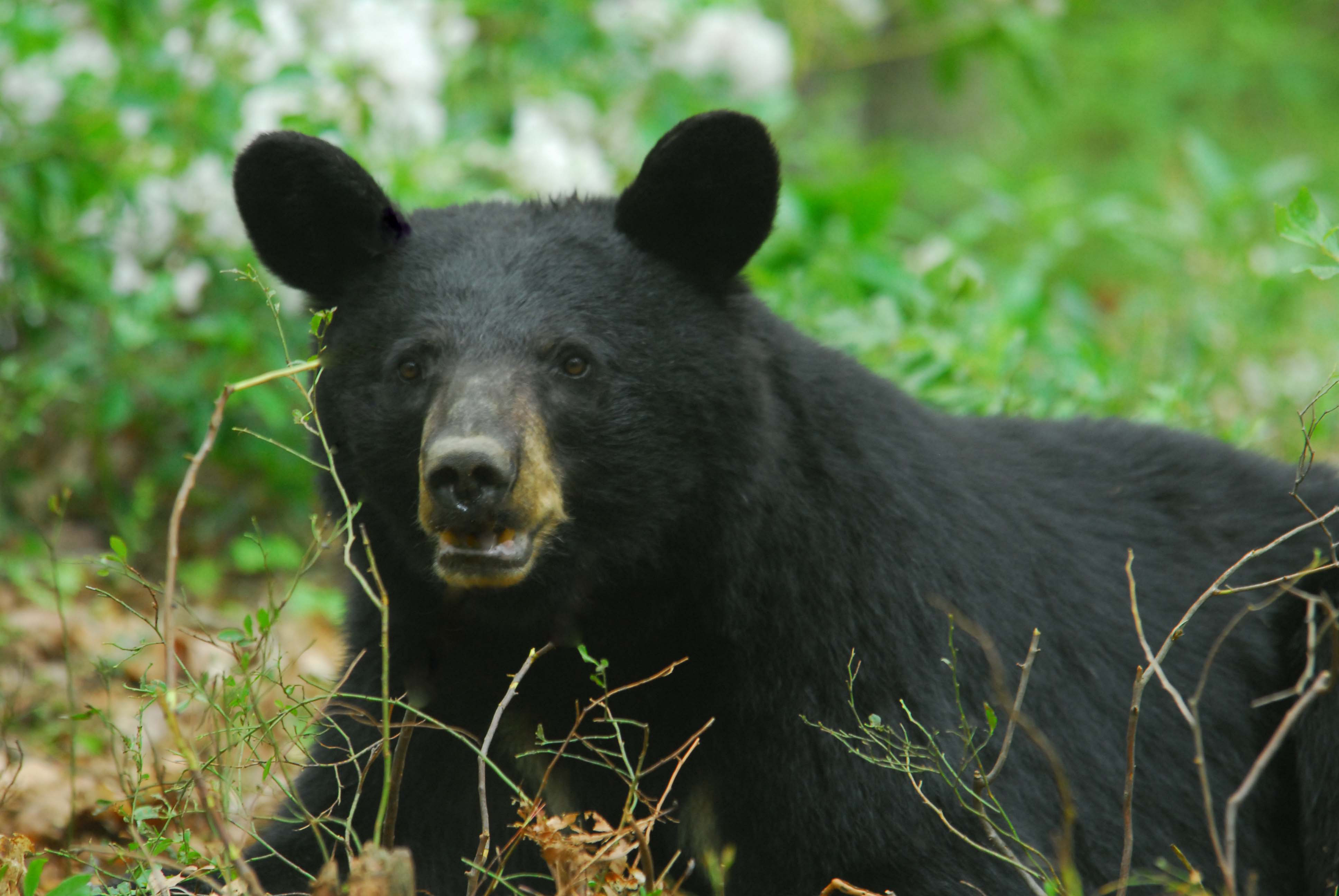Black bear
Black bears range widely throughout North America, frequenting mountainous forests and swamps as well as woodlots in suburban neighborhoods. Bears are omnivorous and their diets vary seasonally. Their diet is mostly plant material, but also includes small mammals, carrion and garbage. Adult black bears typically weigh 100-300 pounds, but males can exceed 500 pounds. Bears are agile and quick, and they are excellent climbers. They are typically nocturnal and generally avoid people, but also readily adapt to and tolerate people. Bears typically den (hibernate) in fall (late October-early December) and emerge in spring (March-April). Some bears may not den at all if they continue to find sufficient food.
Around homes, bears may scavenge for food in garbage containers and bird feeders and for pet and livestock food left outside. They can damage buildings and vehicles while searching for human-provided food. Bears can also damage crops (especially corn) and beehives. They damage trees by clawing bark and breaking branches, and will feed from fruit trees.
Legal, Regulated Hunting in Massachusetts
Legal, Regulated Hunting in Massachusetts
The use of legal, regulated, hunting by licensed hunters can be useful for reducing local wildlife populations and can help reduce nuisance problems in Massachusetts. You can allow hunters on to your property, provide a place for them to park to access nearby forest, and/or give them permission to hunt within 500 feet of your residence. Please also keep in mind that each town may have additional by-laws that restrict hunting and the discharge of firearms.
Solutions for black bear problems
Laws and regulations to be aware of
Regulations for Massachusetts
|
||||
While we attempt to provide guidance about state and federal regulations pertaining to specific species and control techniques, we do not provide information about local jurisdictions (city, town, county, etc.) where regulations may be more restrictive, especially as it applies to discharge of firearms, transport of animals or use of trapping equipment. Contact your local city or county government to inquire further. No guarantee is made that information (or lack of information) associated with a species or control technique is completely accurate or current. You should become familiar with federal, state and local laws before beginning any wildlife control activities. |




